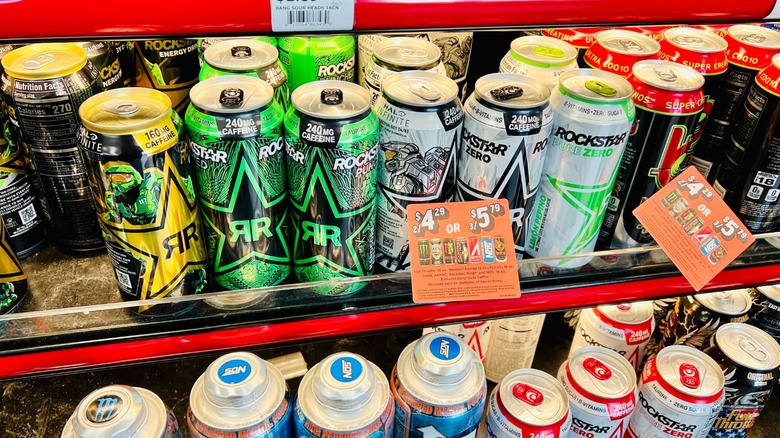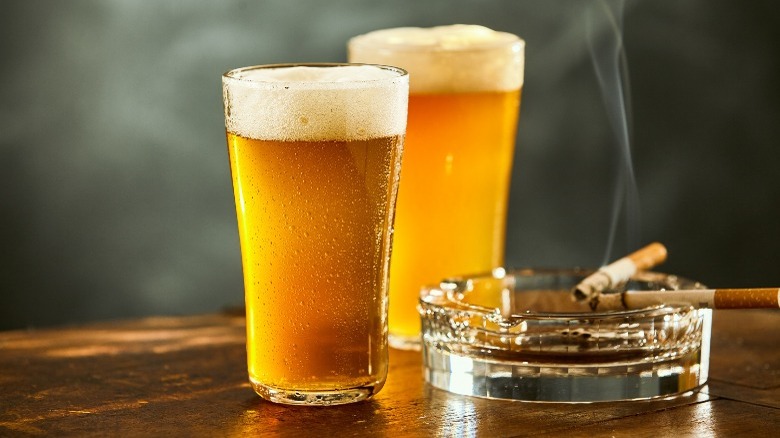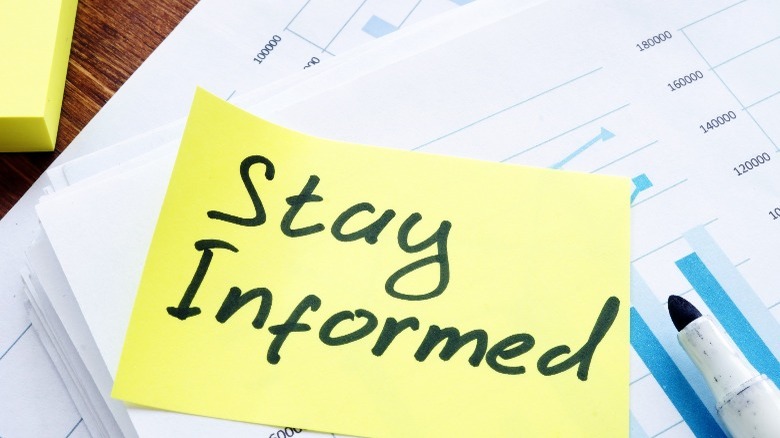Is There A Connection Between Teenagers Drinking Energy Drinks And Future Drug Use?
The Centers for Disease Control and Prevention says that energy drinks are a type of beverage that contain additives like sugar, caffeine, and stimulants like guarana, L-carnitine, and taurine. Most energy drinks contain a substantial amount of these ingredients.
Energy drinks may have some benefits — like bolstering your energy and focus — but they are not recommended for consumption by children and adolescents. However, according to a 2020 study published in the International Journal of Environmental Research and Public Health, energy drinks are marketed to adolescents. Unfortunately, these marketing tactics are effective.
The National Center for Complementary and Integrative Medicine says that besides multivitamins, energy drinks are the most popular dietary supplement of choice for American teenagers and young adults. In fact, nearly 33% of youth ages 12-17 consume energy drinks on a regular basis.
Even worse, the Centers for Disease Control and Prevention cautions that adolescents may be getting these drinks at school: 75% of school districts across the United States do not have a policy on energy drinks and nearly 12% of secondary schools in select districts even sell energy drinks on campus. While energy drinks pose some health threats on their own, there are some other potential negative side effects for teens who drink them.
What the research says
According to Healthline, there may be a link between teen consumption of energy drinks and drug use. Several researchers have found similar conclusions.
A 2014 study published in the Journal of Addiction Medicine found that students' consumption of energy drinks correlated with "alcohol, cigarette, and illicit drug use" within the last 30 days. A 2020 study published in the International Journal of Environmental Research and Public Health analyzed data from over 10,000 students in 7th to 12th grade. The researchers found that while energy drink consumption was associated with the use of drugs like alcohol, cannabis, opioids, and tobacco, middle school students were "at higher risk of other substance use than their high school counterparts" that consumed energy drinks.
However, the risk for drug use that's tied to energy drink consumption might not only apply to adolescents. A 2016 study published in the Journal of Caffeine Research found that young adults ages 18-28 who consumed energy drinks weekly were also more likely to have misused alcohol and drugs in the last 30 days.
Notably, these studies do not imply a causal relationship — meaning that while there is a correlation between energy drink consumption and drug use, energy drinks do not necessarily lead to the consumption of drugs. But a 2017 study published in the journal of Drug and Alcohol Dependence found that young adults who continued to consume energy drinks were at higher risk of alcohol use disorder by the age of 25.
Energy drink addiction: a true story and furthering education
Believe it or not, energy drinks can also be addictive. You can become dependent on energy drinks on both physical and mental levels. Emma Forrest told the BBC that she consumes up to 20 energy drinks per day. "I hate seeing kids drinking them. They are so addictive. If they drink it at the age of ten, by the time they are 16 they'll be addicted. It only took me three years to get to this stage. I'm not happy," said Forrest. When she does not drink them, Emma gets migraines and the shakes.
The jury is out on energy drinks, and the outlook is not good. Not only is there a connection between energy drink consumption and drug use, the drinks themselves can be addictive. The National Center for Complementary and Integrative Health cautions that children, teens, and young adults are the most vulnerable to the drinks' negative health effects. That's why it is important to educate the youth about the potential dangers of energy drinks (per Centers for Disease Control and Prevention).



